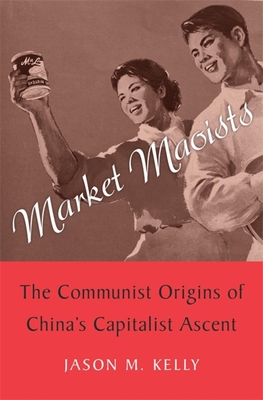Expedite your nonfiction book discovery process with Readara interviews, summaries and recommendations, Broaden your knowledge and gain insights from leading experts and scholars
In-depth, hour-long interviews with notable nonfiction authors, Gain new perspectives and ideas from the writer’s expertise and research, Valuable resource for readers and researchers
Optimize your book discovery process, Four-to eight-page summaries prepared by subject matter experts, Quickly review the book’s central messages and range of content
Books are handpicked covering a wide range of important categories and topics, Selected authors are subject experts, field professionals, or distinguished academics
Our editorial team includes books offering insights, unique views and researched-narratives in categories, Trade shows and book fairs, Book signings and in person author talks,Webinars and online events
Connect with editors and designers,Discover PR & marketing services providers, Source printers and related service providers

Market Maoists: The Communist Origins of China's Capitalist Ascent
History > Asia - China
- Harvard University Press
- Hardcover
- 9780674986497
- -
- -
- History > Asia - China
- (Single Author) Asian American
- English
Readara.com
Book Description
Long before Deng Xiaoping's market-based reforms, commercial relationships bound the Chinese Communist Party to international capitalism and left lasting marks on China's trade and diplomacy.
China today seems caught in a contradiction: a capitalist state led by a Communist party. But as Market Maoists shows, this seeming paradox is nothing new. Since the 1930s, before the Chinese Communist Party came to power, Communist traders and diplomats have sought deals with capitalists in an effort to fuel political transformation and the restoration of Chinese power. For as long as there have been Communists in China, they have been reconciling revolutionary aspirations at home with market realities abroad.
Jason Kelly unearths this hidden history of global commerce, finding that even Mao Zedong saw no fundamental conflict between trading with capitalists and chasing revolution. China's ties to capitalism transformed under Mao but were never broken. And it was not just goods and currencies that changed hands. Sustained contact with foreign capitalists shaped the Chinese nation under Communism and left deep impressions on foreign policy. Deals demanded mutual intelligibility and cooperation. As a result, international transactions facilitated the exchange of ideas, habits, and beliefs, leaving subtle but lasting effects on the values and attitudes of individuals and institutions.
Drawing from official and commercial archives around the world, including newly available internal Chinese Communist Party documents, Market Maoists recasts our understanding of China's relationship with global capitalism, revealing how these early accommodations laid the groundwork for China's embrace of capitalism in the 1980s and after.
Author Bio
Jason M. Kelly is Director of the IUPUI Arts and Humanities Institute and Chair and Professor of History in the Indiana University School of Liberal Arts at IUPUI. He is also an Adjunct Professor of Africana Studies and American Studies. He is a Fellow of the Society of Antiquaries of London and a Fellow of the Royal Historical Society.
Dr. Kelly received his Ph.D. from the University of California, Santa Barbara and is the author of The Society of Dilettanti: Archaeology and Identity in the British Enlightenment (Yale University Press and the Paul Mellon Centre for Studies in British Art, 2010), lead editor of Rivers of the Anthropocene (University of California Press, 2017), and co-editor of An Anthropocene Primer (2017).
As Director of the IUPUI Arts and Humanities Institute, Dr. Kelly supports IUPUI’s research mission by directing the IAHI grant programs, identifying and fostering transdisciplinary research collaborations, and organizing research workshops and symposia. Additionally, he facilitates public arts and humanities partnerships, including research projects, performances, lectures, and exhibitions.
Dr. Kelly’s current research projects focus on the histories of the environment, sciences, and art and architecture . He is currently writing A History of the Anthropocene, a deep history of human-nature relations. He leads The Anthropocenes Network, an international, transdisciplinary, collaborative network committed to developing innovative interventions in environmental research, pedagogy, and policy.
The Anthropocenes Network is home to several projects including 1) Rivers of the Anthropocene, a research project focused on global freshwater systems and policy; 2) Voices from the Waterways, an oral history project; 3) The Anthropocene Household, a community-based research project that uses the household as a way to understand the lived experiences, knowledges, and practices associated with environmental change; and 4) Museum of the Anthropocene, an experimental platform to develop multi-sited, synchronous, interactive, networked environmental installations.
Dr. Kelly directs The Cultural Ecologies Project, a research program and PhD track that works with community stakeholders to study and design cultural interventions across multiple scales — from the personal to the neighborhood to the city level. Most recently, he founded The Covid-19 Oral History Project, a rapid-response research collaboration that archives the lived experience of the Covid-19 pandemic.
Dr. Kelly has received grants from the National Endowment for the Humanities, the National Endowment for the Arts, the Wenner-Gren Foundation, Lilly Endowment, and the Clowes Foundation. He is the recipient of the IUPUI Research Trailblazers Award (2013), two IU Trustees Teaching Awards (2011, 2008), the IU School of Liberal Arts at IUPUI Student Council Outstanding Academic Adviser Award (2010), and the IU Bicentennial Medal (2021).
Source: JasonMKelly.com
Videos
No Videos
Community reviews
No Community reviews

